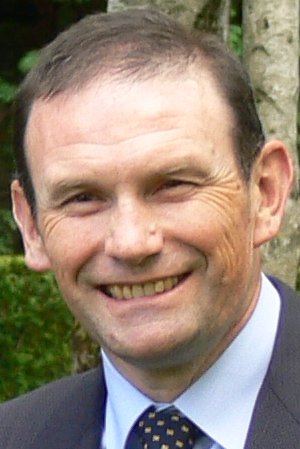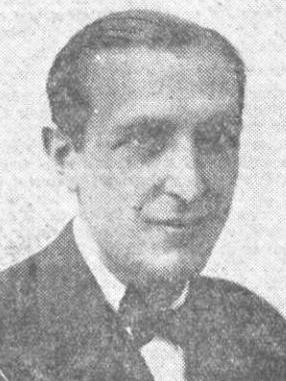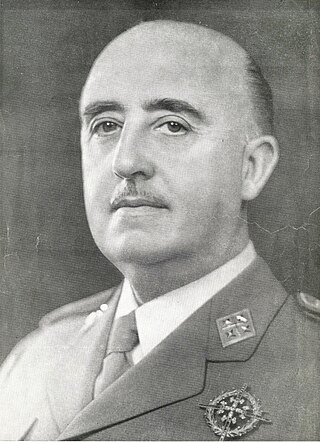Number of mandates available
In line with general division into three equal tercios, number of mandates available for every council was the multiplication of three. The number of mandates available for council depended upon the number of inhabitants in the municipality and ranged from three (municipality below 501 inhabitants) to six (501 to 2,000 inhabitants), nine (2,001 to 10,000 inhabitants), 12 (10,001 to 20,000 inhabitants), 15 (20,001 to 50,000 inhabitants), 18 (50,001 to 100,000 inhabitants), 21 (100,001 to 500,000 inhabitants) and 24 (above 500,000 inhabitants). [10] Compared to older Republican and Restoration regulations the scheme reduced significantly the number of mandates; e.g. during the Second Republic the city of Palencia, then ca. 25,000 inhabitants, was entitled to a 24-member council, while in the 1940s and 1950s, when its population ranged from 35,000 to 48,000 inhabitants, it was entitled to a 15-member council. [11]
Electorate
The population entitled to vote in Tercio Familiar ranged from 7m in the 1940s to 18m in the 1970s, [17] the increase resulting not only from demographic growth but also from extending the voting rights to married females. Until 1970, the electorate of Tercio Familiar represented some 45% of the entire adult population, [18] estimated on basis of the number of Spaniards entitled to vote in the Francoist referendums; since 1970 the number grew to some 75%. [19] Until the 1970s some 65% of adult males were entitled to vote, in case of females this number was 20%; since 1970 the percentage probably equalled this appropriate for males. In Tercio Sindical the number of those eligible to elect compromisarios is difficult to estimate, yet given the size of syndicalist bureaucracy it probably went into hundreds of thousands. The number of compromisarios, i.e. those who were actually electing the councillors, is estimated for the whole Spain as hovering around 50,000; in 1948 in Madrid their number was 2,187. [20] In Tercio de Entidades the number of voters equalled the number of mandates available in two other tercios and remained in the range of few thousand. Some individuals, mostly married working males, were entitled to participate in election process in all three tercios: in Tercio Familiar personally, in Tercio Sindical by electing compromisarios, and in Tercio de Entidades by electing councillors in two other tercios who acted as compromisarios.

The 1993 Spanish general election was held on Sunday, 6 June 1993, to elect the 5th Cortes Generales of the Kingdom of Spain. All 350 seats in the Congress of Deputies were up for election, as well as 208 of 256 seats in the Senate.

The 1977 Spanish general election was held on Wednesday, 15 June 1977, to elect the Spanish Cortes of the Kingdom of Spain. All 350 seats in the Congress of Deputies were up for election, as well as all 207 seats in the Senate.

The 2007 Spanish local elections were held on Sunday, 27 May 2007, to elect all 66,131 councillors in the 8,111 municipalities of Spain and all 1,038 seats in 38 provincial deputations. The elections were held simultaneously with regional elections in thirteen autonomous communities, as well as local elections in the three foral deputations of the Basque Country and the eleven island councils in the Balearic and Canary Islands.

Melilla is one of the 52 constituencies represented in the Congress of Deputies, the lower chamber of the Spanish parliament, the Cortes Generales. The constituency currently elects one deputy using plurality voting. Its boundaries correspond to those of the autonomous city of Melilla.

Ceuta is one of the 52 constituencies represented in the Congress of Deputies, the lower chamber of the Spanish parliament, the Cortes Generales. The constituency currently elects one deputy using plurality voting. Its boundaries correspond to those of the autonomous city of Ceuta.

The 2001 Basque regional election was held on Sunday, 13 May 2001, to elect the 7th Parliament of the Basque Autonomous Community. All 75 seats in the Parliament were up for election.

The 2011 Murcian regional election was held on Sunday, 22 May 2011, to elect the 8th Regional Assembly of the autonomous community of the Region of Murcia. All 45 seats in the Regional Assembly were up for election. The election was held simultaneously with regional elections in twelve other autonomous communities and local elections all throughout Spain.

The 1881 Spanish general election was held on Sunday, 21 August and on Friday, 2 September 1881, to elect the 2nd Restoration Cortes of the Kingdom of Spain. All 392 seats in the Congress of Deputies were up for election, as well as 180 of 360 seats in the Senate.

The 2015 Asturian regional election was held on Sunday, 24 May 2015, to elect the 10th General Junta of the Principality of Asturias. All 45 seats in the General Junta were up for election. Because regional elections in the Principality of Asturias were mandated for the fourth Sunday of May every four years, the 2012 snap election did not alter the term of the four-year legislature starting in 2011. The election was held simultaneously with regional elections in twelve other autonomous communities and local elections all throughout Spain.

Luis Arellano Dihinx (1906–1969) was a Spanish Carlist and Francoist politician. He is recognized as one of the leaders of the so-called Juanistas, a faction within Carlism pressing recognition of the Alfonsist claimant Don Juan de Borbón as a legitimate Carlist heir to the throne.

The 2015 Murcian regional election was held on Sunday, 24 May 2015, to elect the 9th Regional Assembly of the autonomous community of the Region of Murcia. All 45 seats in the Regional Assembly were up for election. The election was held simultaneously with regional elections in twelve other autonomous communities and local elections all throughout Spain.

Manuela Carmena Castrillo is a retired Spanish lawyer and judge who served as Mayor of Madrid from June 2015 to June 2019. She was a member of the General Council of the Judiciary.

This is the results breakdown of the Congress of Deputies election held in Spain on 26 June 2016. The following tables show detailed results in each of the country's 17 autonomous communities and in the autonomous cities of Ceuta and Melilla, as well as a summary of constituency and regional results.

The 2019 Spanish local elections were held on Sunday, 26 May 2019, to elect all 66,979 councillors in the 8,131 municipalities of Spain and all 1,038 seats in 38 provincial deputations. The elections were held simultaneously with regional elections in twelve autonomous communities, as well as elections in the three foral deputations of the Basque Country, the four island councils in the Balearic Islands, the seven island cabildos in the Canary Islands and the European Parliament.

In terms of electoral success Carlism of the Second Spanish Republic remained a medium-small political grouping, by far outperformed by large parties like PSOE and CEDA though trailing behind also medium-large contenders like Izquierda Republicana. During three electoral campaigns to the Cortes combined the Carlists seized less than 50 seats, which is below 3% of all seats available. Disorganized during the 1931 elections, the Carlist candidates were a first-choice political option for some 50,000 voters; following re-organization in successive campaigns the number grew to 420,000 (1933) and 365,000 (1936), respectively 4.9% and 3.8% of active electors. In the mid-1930s as a second-choice option the Carlists were acceptable candidates for some 1.8m voters (18%). The movement enjoyed support mostly in the Northern belt of Spain; the party stronghold was Navarre, the only region where Carlism remained a dominating force; it was a minority group still to be reckoned with in Vascongadas, Old Castile and Aragón, with rather testimonial presence in some other regions. The best known Carlist Cortes personality was Tomás Domínguez de Arévalo, who held the mandate during all three Republican terms.

Women's suffrage in Francoist Spain and the democratic transition was constrained by age limits, definitions around heads of household and a lack of elections. Women got the right to vote in Spain in 1933 as a result of legal changes made during the Second Spanish Republic. Women lost most of their rights after Franco came to power in 1939 at the end of the Spanish Civil War, with the major exception that women did not universally lose their right to vote. Repression of the women's vote occurred nevertheless as the dictatorship held no national democratic elections between 1939 and 1977.

Carlo-francoism was a branch of Carlism which actively engaged in the regime of Francisco Franco. Though mainstream Carlism retained an independent stand, many Carlist militants on their own assumed various roles in the Francoist system, e.g. as members of the FET y de las JONS executive, Cortes procuradores, or civil governors. The Traditionalist political faction of the Francoist regime issued from Carlism particularly held tight control over the Ministry of Justice. They have never formed an organized structure, their dynastical allegiances remained heterogeneous and their specific political objectives might have differed. Within the Francoist power strata, the carlo-francoists remained a minority faction that controlled some 5% of key posts; they failed to shape the regime and at best served as counter-balance to other groupings competing for power.

The 2023 Seville City Council election, also the 2023 Seville municipal election, was held on Sunday, 28 May 2023, to elect the 12th City Council of the municipality of Seville. All 31 seats in the City Council were up for election. The election was held simultaneously with regional elections in twelve autonomous communities and local elections all throughout Spain.

The 2007 Aranese Council Election, was held on Sunday, 27 May 2007, to elect the General Council of Aran, an administrative entity in the province of Lleida (Spain). All 13 seats in the council were up for election. The election was held simultaneously with regional elections in twelve autonomous communities and local elections all throughout Spain.


















